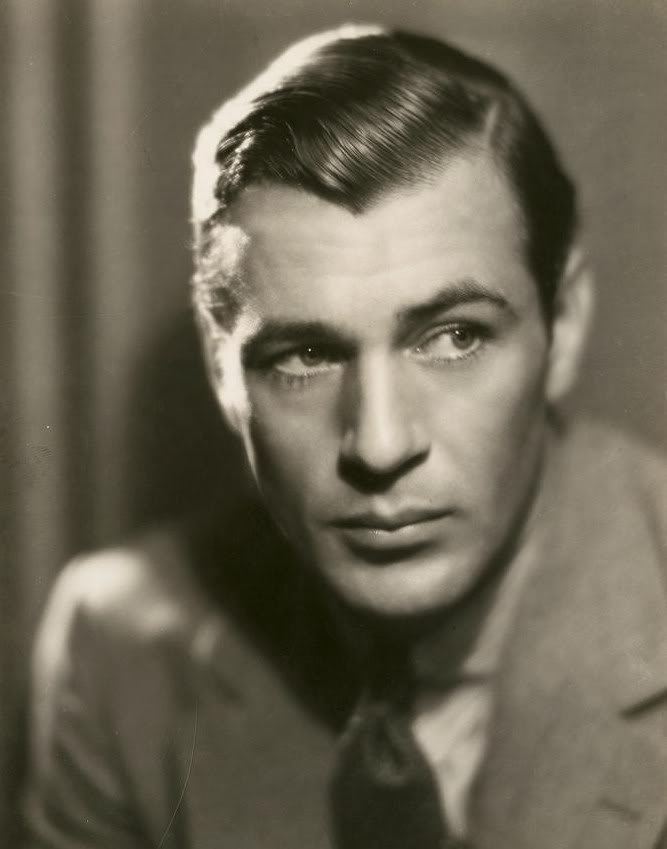Gary Cooper was not just an actor; he was a symbol of American cinema during its golden age. Known for his understated performances and rugged charm, Cooper captivated audiences with his unique ability to portray complex characters with a sense of authenticity. This article delves into the life and legacy of Gary Cooper, exploring his career milestones, personal life, and the continuing influence he has on modern filmmaking.
Born on May 7, 1901, in Helena, Montana, Gary Cooper became one of Hollywood's most iconic figures. As a leading man in films from the 1920s through the 1960s, he earned critical acclaim and numerous awards, including two Academy Awards for Best Actor. His remarkable career mirrored the evolution of cinema, from silent films to talkies, showcasing his versatility and resilience in an ever-changing industry.
Throughout this article, we will look into Gary Cooper's biography, his most notable films, and the impact he had on his contemporaries and future generations of actors. Join us as we celebrate the life of a true Hollywood legend, whose legacy continues to resonate in the film industry today.
Table of Contents
- Biography of Gary Cooper
- Early Life
- Career Highlights
- Personal Life
- Awards and Recognition
- Impact on Cinema
- Legacy
- Conclusion
Biography of Gary Cooper
| Full Name | Frank James Cooper |
|---|---|
| Date of Birth | May 7, 1901 |
| Place of Birth | Helena, Montana, USA |
| Date of Death | May 13, 1961 |
| Occupation | Actor |
| Years Active | 1925–1961 |
Early Life
Gary Cooper was born to a rancher father and a mother who was a teacher. His early years in Montana cultivated a sense of independence and self-reliance that would later define his on-screen persona. After moving to Los Angeles at the age of 15, he pursued a career in art but soon found his way into acting.
Career Highlights
Cooper's film career began in the silent era, but it was his role in "Wings" (1927) that truly launched him into stardom. He became known for his portrayals in classic Westerns and dramas, including:
- "High Noon" (1952)
- "The Fountainhead" (1949)
- "For Whom the Bell Tolls" (1943)
- "Mr. Deeds Goes to Town" (1936)
Personal Life
Gary Cooper was known for his private nature. He married actress Veronica Balfe in 1933, and they had one daughter. Despite his fame, Cooper maintained a low profile, preferring to spend time with family and close friends rather than bask in the Hollywood limelight.
Awards and Recognition
Throughout his illustrious career, Cooper received numerous accolades, including:
- Two Academy Awards for Best Actor
- Golden Globe Award
- Induction into the Hollywood Walk of Fame
Impact on Cinema
Cooper's influence on American cinema cannot be overstated. His ability to embody the "everyman" archetype resonated with audiences, and he paved the way for future actors to explore complex, nuanced characters. Directors like Frank Capra and Howard Hawks admired his talent, and he became a role model for many aspiring actors.
Legacy
Gary Cooper's legacy lives on through his films and the impact he had on the film industry. He remains a significant figure in classic American cinema, with his performances continuing to inspire new generations of filmmakers and actors.
Conclusion
Gary Cooper's life and career reflect the essence of Hollywood's golden age. His remarkable talent and enduring legacy make him a true icon of American cinema. We invite you to share your thoughts about Gary Cooper in the comments below and explore more articles on our site about legendary figures in film history.
Thank you for visiting our site, and we hope to see you again soon for more engaging content about the world of cinema!
Article Recommendations
- P Diddy Look Alike Arrested The Unbelievable Story Behind The Headlines
- Discovering Layla Jenner A Journey Through Her Life And Career
- Szas Height Unveiling The Dimensions Of A Musical Icon


